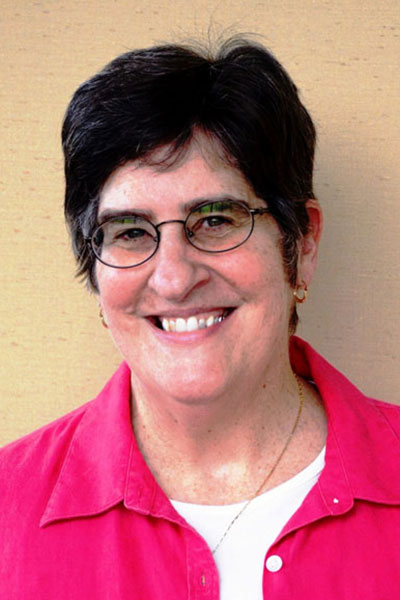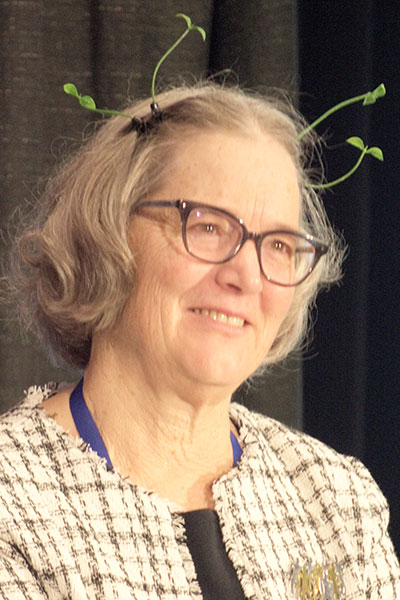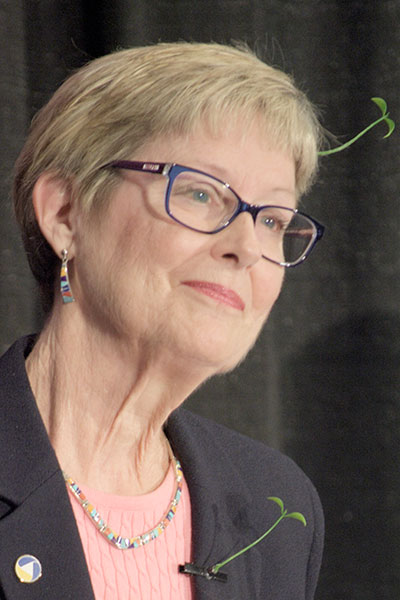Successful organizations strive to move forward and grow continuously, but sometimes, reflecting on the successes and failures of the past reveals the optimal path for the future.

On Sunday, Nov. 17, former Association of Rheumatology Professionals (ARP) presidents led the session Reflections on the Past, Present, and Future Opportunities for Rheumatology Health Professionals to highlight achievements among rheumatology professionals and within the ARP over the past 35 years as a way of putting into perspective the current and future challenges of the workforce and the organization. The session will be available on-demand to all registered ACR Convergence 2024 participants after the meeting through Oct. 10, 2025, by logging into the meeting website.
“The purpose of this session isn’t to reminisce about the past. It isn’t just to report on things. It’s to appreciate how far we’ve come, to build upon that foundation that we have, and to learn lessons that will continue to help us,” said Marian Hannan, DSc, Professor of Medicine at Harvard Medical School, Senior Scientist at the Hinda and Arthur Marcus Institute for Aging Research, and ARP Past President (1998–1999).

The former ARP leaders applauded the organization’s evolution toward evidence-based practices. According to Basia Belza, RN, PhD, Professor of Biobehavioral Nursing and Health Informatics at the University of Washington and ARP Past President (2000–2001), ARP members often used to rely on wisdom passed down from mentors or senior members that was frequently anecdotal due to the lack of research funding and a wider evidence base.
“One of the evolutions that we’ve seen is a much stronger focus on both guidelines as well as the evidence base, and I think that’s important for us in our professions and in our patient outcomes, too,” Dr. Belza said.
Session leaders and audience members all received small plastic plants as a forward-looking symbol of optimism. Many clipped the sprouts to their clothes or hair.
“They symbolize our investment in growth. They symbolize taking advantage of the growing friendships, expanding knowledge base, and sprouting up new ideas for professional growth as well as the future of the ARP,” Dr. Hannan explained.

Presenters also discussed the evolving workforce that makes up the ARP membership. A key inflection point was the integration of physician assistants and nurse practitioners into the ARP ranks. Teresa Brady, PhD, MACR, Senior Consultant for Clarity Consulting and Communications and ARP Past President (1991–1992), said more than 20 disciplines are represented within the ARP membership base today.
“We have a lot of very diverse needs and interests and skill sets, which are a strength of our organization, but something that we need to nurture carefully and make sure that we’re meeting those needs,” Dr. Brady said.
Session leaders encouraged ARP members to take advantage of educational opportunities, scholarships, and mentorship from the Rheumatology Research Foundation (RRF). They also encouraged students to apply for the RRF’s Choose Rheumatology Scholarship to continue to expand the workforce.
“The growth of the ACR depends in part on the growth of the ARP,” Dr. Brady said.
The group also examined the ARP’s growth through its relationship with the ACR. The organizations’ collaborative relationship began in 1994 and continues to strengthen. Dr. Brady shared that current ARP leadership has reported they feel well-integrated and respected by ACR members, particularly with the increased number of ARP members on key planning committees.
“We have a seat at the table, and we have a voice,” Dr. Brady said. “Now our challenge is to use that voice to represent all of our diverse members and their diverse roles.”
One way to amplify the ARP’s voice is increased participation at ACR Convergence. The Annual Meeting Planning Committee (AMPC) Chair Gregory C. Gardner, MD, MACP, and Annual Meeting Planning Subcommittee Chair Priscilla Calvache, LCSW, are committed to increasing the number of ARP-focused sessions offered at ACR Convergence 2025.
Register Today for ACR Convergence 2025

If you haven’t registered for ACR Convergence 2025, register today to participate in this year’s premier rheumatology experience, October 24–29 in Chicago. All registered participants receive on-demand access to scientific sessions after the meeting through October 31, 2026.
